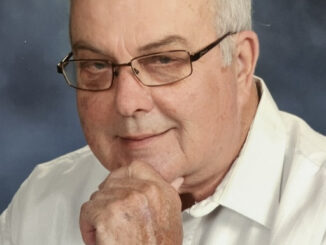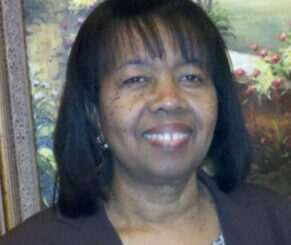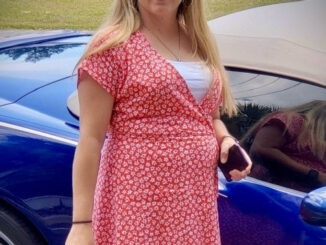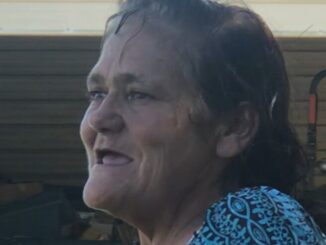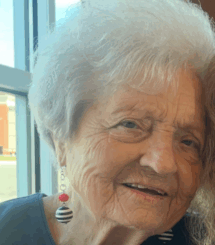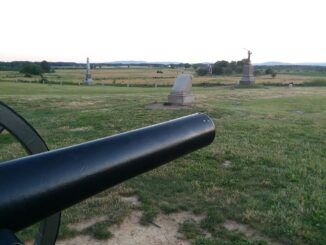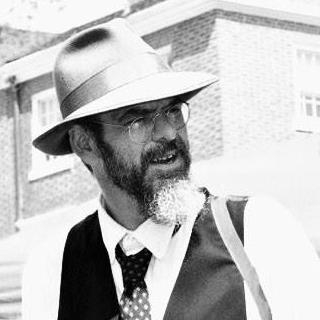
It never confused me that words were backwards and upside down.
It wasn’t that I was dyslexic; indeed, I’m not sure we even knew that word on April 25, 1978. It was just that I had grown up standing on a drink crate in front of my father, learning to read upside down and backwards, helping create words using blocks of lead type.
The words were backwards on the Linotype, too, but that machine spat out sticks of lead, entire stories to be locked into a frame and attached to a press, then coated in ink and pushed onto sheets of paper, hundreds and hundreds of times. Our paper didn’t use the Linotype as much anymore, except for special projects. Usually we used the smelly, ill-tempered phototypesetter, a chemical-leaking, unreliable modern contrivance that was the shape of things to come. Stories were turned into strips of paper on that machine. The strips were processed like photographs, then cleaned, cut out and coated in wax before being stuck to large sheets that were in turn photographed. Then the negatives of those photographs would be created by a huge camera with bright lights we boys were forbidden to look at. The negatives would be used to “burn” plates that served the same purpose as the old frames of lead type my father let me “help” assemble.
My father didn’t like the headlines created by the phototypesetting machine, so he did a lot of them by hand on the Ludlow. Those were inked and printed on a smaller version of the old press that once printed our paper, and the sheets cut out, waxed and placed alongside the modern strips on what would become our paper.
Our paper had a few of the newer touches, like the hateful Compugraphic machine and a Xerox copier, but it was still a place of buzzing lights, jangling rotary dial phones, bare bulbs, manual typewriters, dust, and the smell of newsprint that was 50 or more years old when I was 12.
We were more of an old paper than a new one, and that was one reason the Dispatch was being shut down. The competition was investing in newer, faster, cleaner technology (another word I’m not sure existed) and it was paying off for them.
Our paper was tired. Too many times I have compared it to an old lion described by Robert Ruark. The lion was once a king of all he surveyed, but his rivals became younger and stronger. His teeth became dull, and his claws worn down. One day, his back was broken in a fight, and he could no longer defend what was his, although he tried to the very end. When Ruark saw the cat, and put him out of his misery, the lion was surrounded by hyenas and vultures, all of whom were waiting to eat him alive. The lion roared one last time.
Even though I was a very young child, I can remember the excitement in our little country house when Papa got the phone call that he was hired to be the editor of the Dispatch. Miss Lois clapped and laughed, since Papa had rented a big old home from his new employers. That big house was the home she had always wanted, but I had two homes.
The other was the newspaper office.
The world flowed in and out of that office like tides in a salt marsh, replenishing and refreshing everything every day. There was always something new – someone with a big deer or a big watermelon, a new business, a beauty queen, a politician challenging an incumbent, or one planning to hold onto his seat. There were wedding announcements and engagements and births and deaths and meetings and tobacco market openings and church trips and scandals and arrests and murders and heroes and car wrecks and lost dogs and wayward cows and a half-dozen of the last farmers to still use mules.
Those were just a few of the things that flowed through the front door, a thick plate glass monstrosity with a single BB hole that allowed a beam of sunlight to burn through a tint created by the nicotine, ink and dust of four generations. The lives, failures, fortunes, victories, defeats and dreams of an entire community went in and out of those doors every day, Monday through Friday, and Saturday mornings by appointment.
News from around the world flowed through the Associated Press ticker machine in the backshop. Long rolls of paper, half the width of a typewriter platen but yards in length, spat out stories from Washington City, London, Hanoi, China, Hawaii, California, Germany, and places I had to look up on the National Geographic map pinned to the wall.
The ticker had a buzzer that was usually drowned out by the sound of the press. When something big happened – tidal waves, tornadoes, earthquakes, Nixon’s resignation, Elvis’ death, the fall of Vietnam – a light would flash. I was occasionally assigned the role of carefully ripping the breaking news from the machine and racing up front to give it to my dad, who then determined if it had a place in that day’s edition.
The AP machine was never, ever turned off, unless it had to be fixed. Like the lead-forming machines, the waxer, even the nasty phototypesetter machine, it always stayed warm, ready in case something happened.
I knew our paper was closing, but I didn’t quite understand. I was confident my father would find a new job. I think part of me felt that something would happen at the last minute, like in the old movies he and I watched together, a financial deux a machina that would make it so someday I would take his place in the corner office with the rolltop desk, the black Royal typewriter, creaking old chair and huge stacks of Congressional Records dating back to World War One, all illuminated by a single bare bulb hanging from a cloth-wrapped wire dangling from the darkness of the ceiling.
My father was my hero, and I knew if he could stand up to upset readers, politicians, union bosses, Klansmen and Black Panthers, drunks and angry housewives – well, there wasn’t anything that would defeat him.
But on that day, the machines were cold. The ticker was turned off. Phones rang with people calling to express their condolences. It was like a funeral. The trucks still passed by on Cumberland Avenue, and the train I always had to race to distribute my papers still ran, but most of the people I had grown up watching work were gone.
On the layout boards, where we mixed old and new to create the paper for people to read, there was a single sheet of letterhead with – 30 – written in a bold sweeping hand. It was our editorial page cartoon for that day, April 25, 1978. I knew what – 30 – meant. It went at the end of a story, when it was finished and ready to go. I even used it on some of my school papers. I still use the notation, though most of my words are written on a computer and folks can tell when a story is finished.
I didn’t understand, or I didn’t want to understand, exactly what our editorial page cartoon meant that day.
The old lion had roared one last time.
My father’s tiny office was always a safe place; I was sometimes sent there when there were things happening that were not for young ears, or when my mother decided I was in the way. It was where Papa explained things to me, things like politics and government and history and newspapers and business. I headed that way, since I knew that was where I could find some answers.
As I rounded the corner into the front part of the building, I heard something strange. It was a noise I didn’t recognize, nor did I understand why it was coming from my father’s office.
It was the sound of my father crying, as only a broken, worried man can cry.
I didn’t understand it, but for the first time I could remember, I was truly afraid.
For 21 years, the Old Man wrote a column every year, saying goodbye to The Dunn Dispatch. He began writing the column when he was working at another community newspaper, and continued even after he left there. Sometimes it was printed, sometimes it wasn’t.
In 2001, he lay in his hospital bed, too weak to sit up. A few days before he died, he asked me to carry on his tradition. I promised I would do so, and for 21 years, I have kept my word.
I also made a promise to myself that day, about another column. Lord willing, you’ll read that one in a few days.







